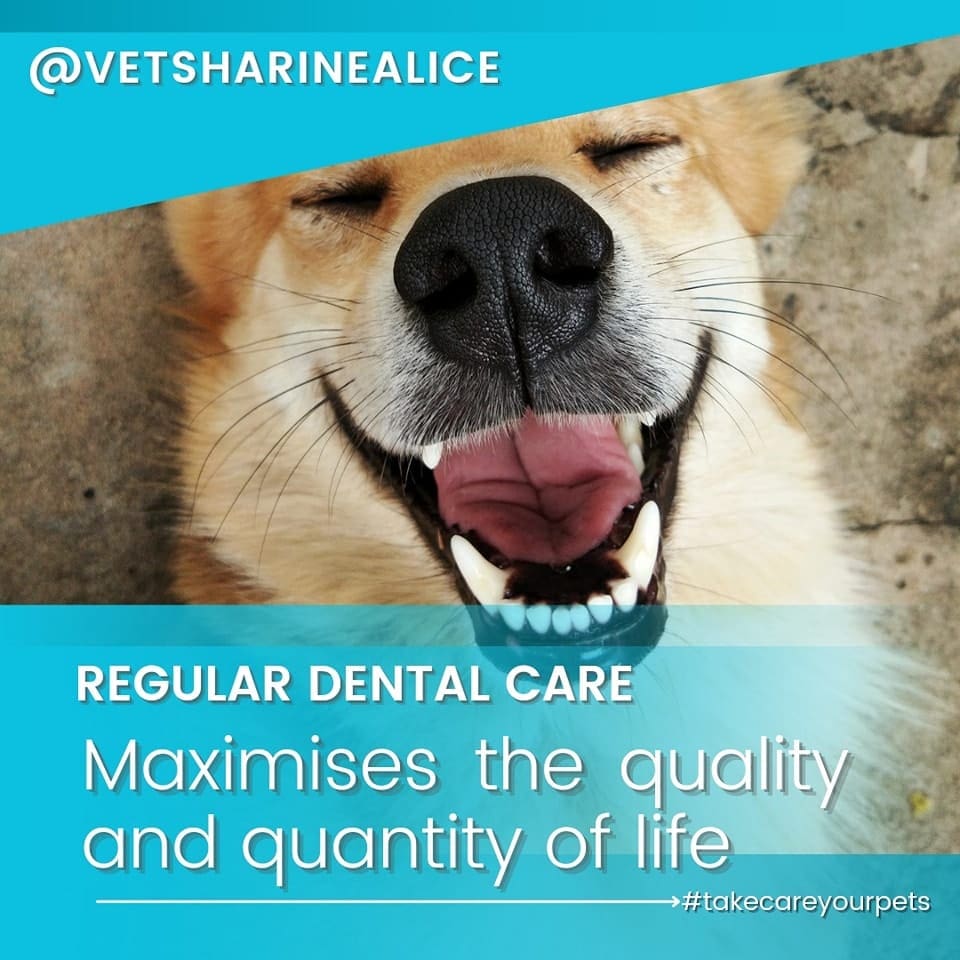Have you ever seen your pet brushing its own teeth??
Hahaha, I have never seen it! Just imagine not brushing YOUR teeth for a month, a year, or more?!? And you wonder why your pet has a bad breath…uhhh.
After the pet’s second year, teeth cleaning should be done, in small breeds, it is recommended at least once a year, and in bigger breeds every other year.
Here are some benefits of pet’s dental deep cleanings:
PREVENTING TOOTH LOSS
Good dental health can help prevent tooth loss because dental disease causes them to fall out. Without teeth, dogs can’t eat as well or enjoy the life you want to give them. With regular dental cleanings, your dog’s teeth stay strong and healthy for years.
AVOIDING BAD BREATH
While it might seem like bad breath is a natural part of being a dog, halitosis can be a sign your pet has poor dental hygiene. If you can’t stand the smell of your dog or cat’s breath, schedule a dental examination to help restore their mouth to good health.
PREVENTING PAIN
No one wants to see someone they love in pain. But when your dog suffers from dental disease, that’s exactly what happens. With teeth falling out and plaque building up beneath the gums, your dog or cat will find eating painful.
To help your pet avoid oral pain throughout their life, work closely with your veterinarian to maintain their dental health.
AVOIDING ORGAN DAMAGE
Dental disease affects more than your pet’s mouth, so when you care for your dog’s teeth, you’re promoting their overall well-being. When the bacteria from the plaque enters the bloodstream, it makes its way to the kidneys, heart, and liver.
EXTENDING YOUR PETS LIFE
Some studies suggest that severe periodontal disease could reduce your pet’s life by up to two years.
The maximum age the pet can be for a veterinarian teeth cleaning depends on many factors, breed, general health conditions, weight, and more, because this is a procedure that requires anesthesia, I always recommend running general blood work, and kidney and liver function tests.
The procedure is quick, and the results are immediate. Some advanced cases would require the extraction of loose, infected, or broken teeth, and antibiotics might be necessary.
While implementing an at-home oral care routine (and perhaps pairing it with dental treats or chews) is important in that it helps control plaque and tartar buildup, visiting the vet regularly for a professional cleaning is the best way to keep your dog’s mouth clean and healthy.







